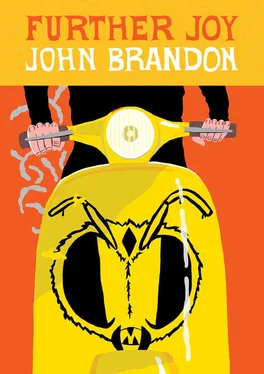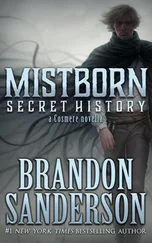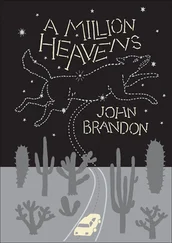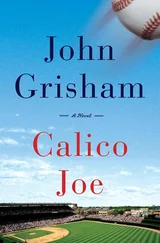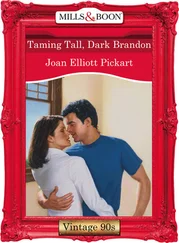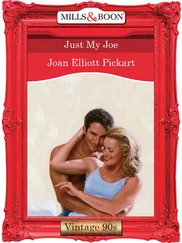“I’m not running an experiment,” Pauline scoffed. “And who said I didn’t fit in?”
“The world needs white trash. I’m not getting down on them.” The bartender held a shaker up to the light. “This country wouldn’t be what it is without white trash.”
“Okay, since I’m not white trash, what am I?” Pauline asked.
“Best I can tell, you’re a levelheaded gal who likes to sip on a beer in the middle of the day because it makes you feel not so levelheaded. I wouldn’t say you’re happy, but you’ve managed to not have anything bad happen to you yet.”
Pauline was quiet. Then she said, “Damn.”
“Don’t worry, I can do that to anyone. Trick of the trade.” The bartender ate one of Pauline’s chips. “Stale,” she said. She gave the basket a shake, rattling her bracelets, and walked off toward the kitchen with it.
Pauline went out to the balcony and found Mal hanging things. Some shop had gone under and Mal had plundered a birdfeeder and a set of wind chimes. She had neglected to pick up birdseed, so Pauline emptied a can of mixed nuts into the feeder. The two of them sat as still as they could, occasionally making a kissy bird noise. Mal was in her accustomed spot on the banister, a chime dangling inches above her head. From what sounded like a couple miles away, Sunday church bells were tolling.
“I used to go to church,” Pauline said. “I was Catholic for part of college.”
“Because of a guy?” Mal asked.
“Initially.”
“I was raised Church of Christ, until I wore out on it.”
Pauline took a handful of nuts from the birdfeeder. She sat in her camping chair and sifted for cashews and almonds.
“The preacher’s son used to touch my knees under the table,” said Mal. “I wore a skirt usually but he never went higher than right here.” She dragged a fingertip high across her thigh, and then something over toward the swamp caught her attention.
Pauline stretched up from her chair and saw a gawky bird striding toward them. The way his head lolled back and then stabbed ahead was vaguely threatening.
“You won’t fit on this porch, buddy,” Mal said. “You gotta get your own lunch.”
The bird stood still then, like it was waiting for Mal to say more. A breeze kicked up, thick with the scent of reptiles and blossoms. Mal’s stomach growled and the bird laboriously took flight, beating the air, scraping the weeds with its belly.
“You and I need a cookout,” Pauline said. “I’m getting a grill. I think I might go get it right now.”
“Can’t. I’m seeing this guy Tug later today. He’s named after a pitcher and that pitcher’s son is Tim McGraw, the country singer. He wears a bow tie.”
“Tim McGraw?”
“No, this guy Tug wears a bow tie. He came in the store while I was working and gave me a pin, only he called it something else.”
“A brooch?”
“Bingo.” Mal straightened her arm and admired her nails, each of which bore a green dot. “A beetle brooch.”
“That’s what I want,” Pauline said. “A guy in a bow tie who gives me a charming gift. Maybe that was my guy and you intercepted him.”
“You don’t have a workplace,” Mal said. “You don’t have a place where you’re stuck, where you’re out on display.”
“I guess that’s true. I guess there’s not much chance they’re going to randomly stop by my apartment.”
Mal yawned, stretching her legs along the banister and reaching her arms up alongside the wind chimes.
“Where are you guys going on the date?” Pauline asked.
“No idea. That’s up to him. I ain’t paying for anything and I ain’t driving.”
Pauline’s reflex was to tell Mal to be careful, to remind her that she didn’t know this guy at all, to advise her not to let him take her anywhere too secluded, but she kept her peace. Mal had made it this far. She wasn’t helpless. The girl knew how to do a lot of things Pauline didn’t know how to do, like change oil and sew up clothes when they got a rip. Maybe using men for pure fun was another thing she was skilled at. She didn’t need an amateur like Pauline nagging her.
“Hope he takes you somewhere nice,” Pauline said. She had nothing but peanuts left in her hand, and she stood and returned them to the feeder.
Pauline woke up late and worked most of the next day. She played Cyndi Lauper, covered her kitchen table with file folders and pens and her computer and her tea gear. She opened all her blinds and the sun-washed day cleared her head. She switched to some old Tom Petty, then a Motown mix. She ate a banana that was about to go bad. The time flew.
Pauline hard-boiled an egg and painted her fingernails. She took down a bag of trash and cleared the credit card offers and coupon books out of her mailbox. She walked past her car in the lot, and saw that Mal’s car was there too. Mal hadn’t been home all day. Maybe she was still on her date.
Back upstairs, Pauline dropped her blinds and turned on the overhead light. It was past three o’clock all of a sudden. She stretched out on the couch and started reading a book about the role of colonization in world cuisines. She read a chapter, then realized she hadn’t been paying attention to what she was reading. There was a big brown spider on the ceiling, but she was too lazy to get up and kill it. She watched it for a while, hoping it wasn’t on the move.
The next thing she knew, it was morning. She was still on the couch. She’d slept through the evening and through the whole night. The spider was nowhere to be seen. She got up, her hips stiff, and brewed some coffee; then she put the coffee in a thermos cup and drove down to the mechanic. Her car had been making a noise for weeks, laboring in the low gears, and she was finally going to take it in.
She had hoped to be first in line when the place opened, but when she got there the lot was already a hive of activity. She waited awhile until her car could be looked at, then waited while the guy at the desk, in over-explanatory terms, told her she needed a tune-up and a belt and some kind of gasket and also her front brakes could stand some attention. Pauline settled into the waiting room and flipped through magazine after magazine at a steady but unhurried pace, registering each advertisement and headline. Across the way there was another shop, one for gleaming, tricked-out hot rods, and Pauline watched the men over there gathering around the front ends of the cars to lean in and admire the engines, childlike satisfaction on their faces. She wondered if she ought to go stand outside where she could be seen. Maybe one of them would come over and speak to her — maybe the slow-moving, tall one with the parted hair. Maybe he’d look at her like she was one of those shiny engines. Of course she wouldn’t do it. She wouldn’t go out there in the sun and pose. She’d stay stuck on her ratty vinyl chair.
The morning after that, Pauline spent an hour clearing old junk off her computer’s hard drive. She wanted someone to go to a late breakfast with, but Mal still wasn’t back. She hadn’t heard a peep from the girl. Pauline sat on the balcony, watching a gauzy cloud slowly disassemble and listening to the different calls the birds made. She wiped off her windowsills and shined the air conditioning vents and folded some laundry she’d let pile up, and then after that she had nothing else to do. Her apartment was spotless and organized. She made a bowl of cereal and ate most of it, then fetched a trash bag and took it to her closet, where she began scrutinizing each shirt or skirt or pair of pants one by one. She needed to do a Goodwill haul and thin out her wardrobe, she decided. The rule was supposed to be that if you hadn’t worn something in a year, it could go, but Pauline hadn’t worn most of her clothes in the past year. There was no reason to wear anything nice in Palatka. She was staring indecisively at a sleeveless chiffon blouse when it hit her that she was worried about Mal.
Читать дальше
